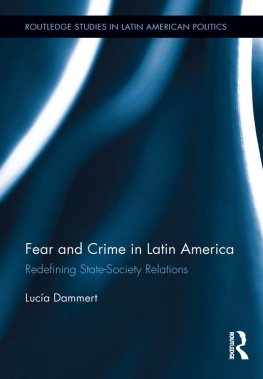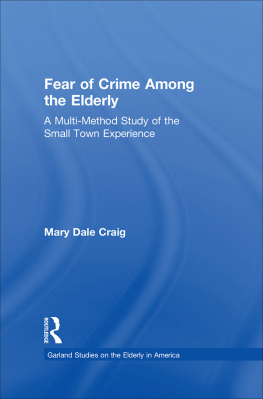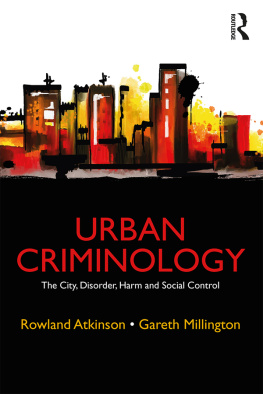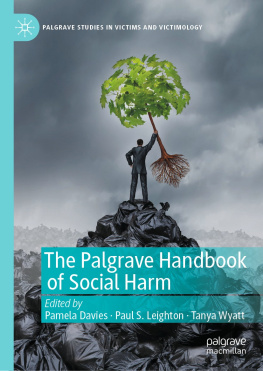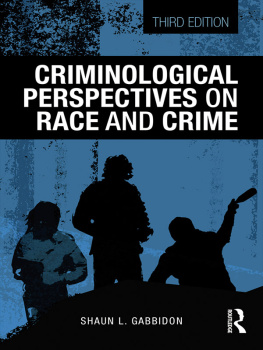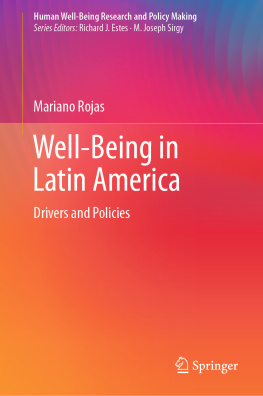Varieties of crime, especially violent crime, top the policy agenda throughout most of Latin America and the Caribbean. An important research question is the ways in which crime generates fear in the citizenry and the types of personal, social, and political responses that fear provokes. These important linkages have not been sufficiently explored to date. Luca Dammert, a leader in the new generation of Latin American scholars on citizen security, breaks new ground on these themes with a focus on Chile and the broader implications for the region.
John Bailey, Georgetown University
Luca Dammert, one of the best analysts working on citizen security, has written an extremely important book. Dammert is scrupulous in her research and sophisticated and imaginative in her thinking. Her interpretation of the Chilean case and broader insights about fear are illuminating. No issue has greater implications for social peace and democratic governance in Latin America.
Michael Shifter, President, Inter-American Dialogue
Fear and Crime in Latin America
The feeling of insecurity is a little known phenomenon that has been only partially explored by social sciences. However, it has a deep social, cultural and economic impact and may even contribute to define the very structures of the state. In Latin America, fear of crime has become an important stumbling block in the region's process of democratization. After long spells of dictatorships and civil wars, violence in the region was supposed to be under control, yet crime rates have continued to skyrocket and citizens remain fearful. This analytical puzzle has troubled researchers and to date there is no publication which explores this problem.
Based on a wealth of cutting edge qualitative and quantitative research, Luca Dammert proposes a unique theoretical perspective which includes a sociological, criminological and political analysis to understand fear of crime. She describes its linkages to issues such as urban segregation, social attitudes, institutional trust, public policies and authoritarian discourses in Chile's recent past. Looking beyond Chile, Dammert also includes a regional comparative perspective allowing readers to understand the complex elements underpinning this situation.
Fear and Crime in Latin America challenges many assumptions and opens an opportunity to discuss an issue that affects everyone with key societal and personal costs. As crime rates increase and states become even more fragile, fear of crime as a social problem will continue to have an important impact in Latin America.
Luca Dammert holds a PhD in Political Science from Leiden University. She is Executive Director of the Global Consortium on Security Transformation and has been researcher at University of Chile, FLACSO Chile and Universidad de San Martn in Argentina. She was a public policy fellow at the Woodrow Wilson Center for Scholars. She has been an advisor to the Public Security Department of the Organization of American States and to the Ministry of Interior in Chile, Argentina and the Public Security Secretariat in Mxico.
Routledge Studies in Latin American Politics
Research and International Trade Policy Negotiations
Knowledge and Power in Latin America
Edited by Mercedes Botto
The United Nations in Latin America
Aiding Development
Francis Adams
Fear and Crime in Latin America
Redefi ning State-Society Relations
Francis Adams
Fear and Crime in Latin America
Redefining State-Society Relations
Luca Dammert
First published 2012
by Routledge
711 Third Avenue, New York, NY 10017
Simultaneously published in the UK
by Routledge
2 Park Square, Milton Park, Abingdon, Oxon OX14 4RN
Routledge is an imprint of the Taylor & Francis Group, an informa business
2012 Taylor & Francis
The right of Luca Dammert to be identified as author of this work has been asserted by her in accordance with sections 77 and 78 of the Copyright, Designs and Patents Act 1988.
All rights reserved. No part of this book may be reprinted or reproduced or utilised in any form or by any electronic, mechanical, or other means, now known or hereafter invented, including photocopying and recording, or in any information storage or retrieval system, without permission in writing from the publishers.
Trademark Notice: Product or corporate names may be trademarks or registered trademarks, and are used only for identification and explanation without intent to infringe.
Library of Congress Cataloging-in-Publication Data
Dammert, Luca.
Fear and crime in Latin America: redefining state-society relations /
Luca Dammert.
p. cm.
Includes bibliographical references.
1. Violent crimesLatin America. 2. Internal securityLatin
America. 3. DemocracyLatin America. 4. Security (Psychology)
Political aspectsLatin America. 5. State, The. 6. Latin America
Politics and government. I. Title.
HV6810.5.D35 2012
364.98dc23
2011048936
ISBN: 978-0-415-52211-3 (hbk)
ISBN: 978-0-203-11628-9 (ebk)
eISBN: 978-1-136-29827-1
Typeset in Sabon
by IBT Global.
To Camila and Matas
Contents
Acknowledgments
This book is the result of more than a decade of research into the issue of citizen security in Latin America and three years of intensive study of the high levels of fear of crime that Chileans express in their daily lives. My academic and professional journey has been very diverse. I studied sociology at both Pontificia Universidad Catlica del Per and Universidad Nacional de Cuyo in Argentina. My bi-national education allowed me to develop a strong regional perspective of the importance of social issues in Latin America. I owe much of my passion to follow the line of investigation of social problems to many of my teachers and friends who ardently debated how to interpret and analyze social tensions, violence, and institutional weaknesses. Soon after, I moved to Pittsburgh to focus in greater depth in the fields of Latin American Studies and Public Policy. I will be forever grateful to Eduardo and Billie Lozano who were crucial in allowing me the time to build my family while focusing my studies on the importance of sound public policies.
Returning to Latin America was a challenge. Economic crisis and political instability were the focus of many research studies at the time, while crime, insecurity, and police forces were not. A fertile terrain in the region allowed me to develop and to continue my specialization on democracy and public security issues. Even though it was in a state of crisis, the Argentinean National Scientific and Technical Research Council (CONICET in Spanish) awarded me with a fellowship to further my research on crucial issues that were very much understudied. At that time, a group of scholars helped me to understand the specific complexities of violence in Argentina, including Mximo Sozzo, Gabriel Kessler, Marcelo San, Alejandro Isla, and Marcelo Cavarozzi, whose time and insightful comments helped inspire and drive my own research.

